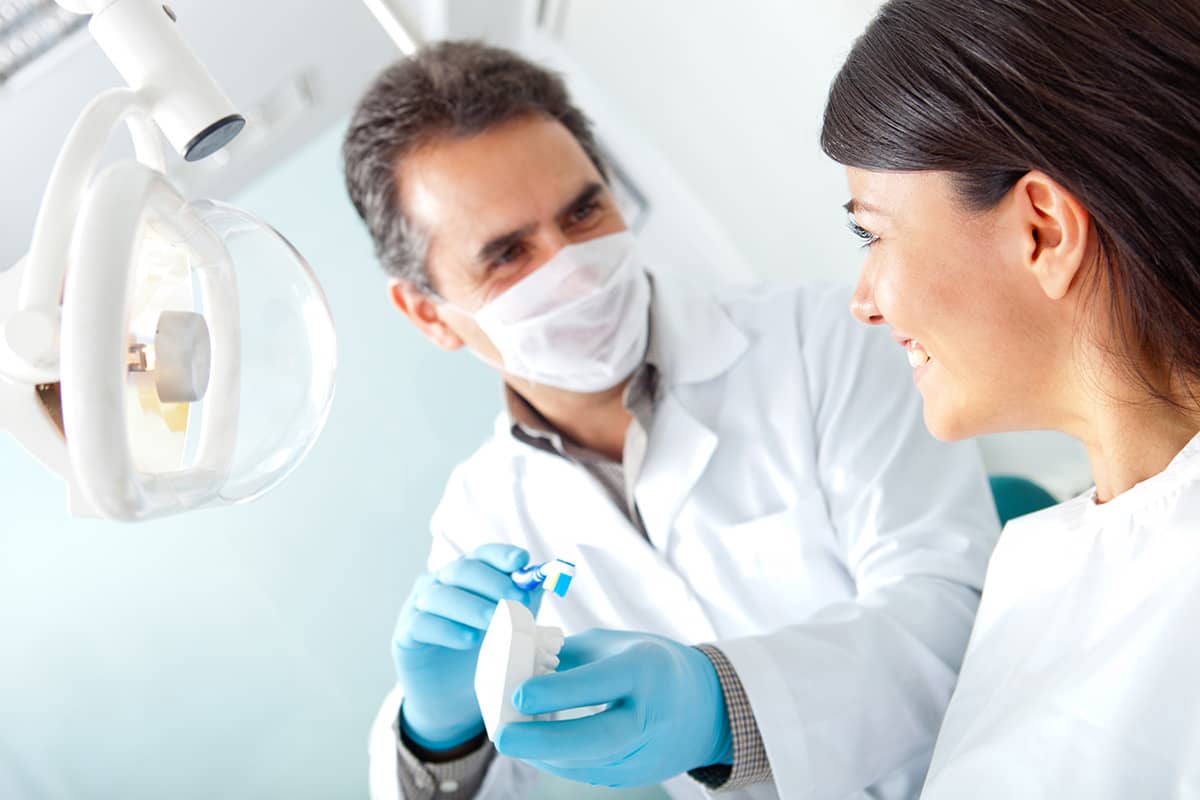
What are wisdom teeth?
Situated at the posterior of your mouth, wisdom teeth are the ultimate set of molars. For many people, they don’t cause any problems. However, for others, wisdom teeth can grow in an awkward or abnormal position and put pressure on other teeth. In some cases, wisdom teeth can become impacted, meaning they are stuck beneath the gum line and unable to push through the jawbone. When this happens, it can lead to a variety of painful symptoms, such as swelling, infection, or pain when chewing food.
This guide will provide tips on how to cope with a wisdom tooth removal, so that you can get back to feeling your best quickly after surgery.
“How to deal with” guide after a Wisdom Teeth Removal
The day of your surgery
The day of your wisdom teeth removal surgery is a crucial part of the healing process. It is important to follow all instructions given to you by your oral surgeon, so that you can ensure proper healing and avoid complications such as dealing with a painful dry socket.
Before leaving the office, make sure to ask for detailed instructions on how to care for yourself at home. Wisdom teeth surgery will likely include advice on how to manage pain and swelling and what measures need to be taken to avoid dry socket. It is also likely that your oral surgeon will provide you with gauze that you should keep in place over the extraction sites for at least 30 minutes after the procedure is complete. This will help absorb any blood or fluid from the area and reduce swelling.
Oral Hygiene
Good oral hygiene is essential for maintaining healthy teeth and gums, especially after a wisdom tooth extraction. To keep your mouth clean and prevent bad breath, it is important to brush your teeth twice per day with a soft-bristled toothbrush and fluoride toothpaste. It is also important to floss gently between the teeth once a day to remove any food particles or plaque that could lead to infection or bad breath. Additionally, mouthwash can be used to help reduce bacteria in the mouth and freshen your breath.
When brushing and flossing after wisdom tooth extraction, it is important to be gentle around the extraction sites as they are likely still healing. If you experience pain when brushing or flossing, switch to a softer-bristled toothbrush or talk to your periodontist about other options available for cleaning around the site(s).
Diet
Diet is an important factor in the healing process after wisdom teeth removal. It is best to stick to liquid and soft foods for the first few days to allow the surgical site(s) to heal properly. Avoid hot or spicy foods, as these can cause pain and discomfort at the extraction site(s). Additionally, crunchy or hard foods should be avoided, as they can irritate the area and lead to bleeding.
Overall, eating a balanced diet with plenty of liquids can help ensure proper healing after wisdom tooth removal surgery.
Medications
After wisdom teeth removal, it is important to take medications as prescribed by your oral surgeon or periodontist. Your doctor may prescribe pain medications such as ibuprofen or acetaminophen to help manage any dental pain you may experience in the weeks following surgery. If you become nauseous after taking these medications, talk to your doctor about other options available.
In addition to prescribed medication, applying an ice pack to the extraction site(s) can provide relief from swelling and discomfort. This should not be done more than 15 minutes at a time and should not be applied directly to the skin.
It is also important to remember that any medications taken for pain relief should not replace proper dental care and hygiene habits established prior to surgery. This means brushing twice per day with a soft-bristled toothbrush, flossing once a day, and using mouthwash as recommended by your doctor. Following these steps will help promote proper healing and reduce the risk of infection during the recovery process after wisdom tooth removal.
Medication
After wisdom teeth extraction, it is important to take medication as prescribed by your oral surgeon or periodontist. Your doctor may prescribe pain medications such as ibuprofen or acetaminophen to help manage any dental pain you may experience in the weeks following surgery. If you become nauseous after taking these medications, talk to your doctor about other available options.
In addition to prescribed medication, applying an ice pack to the extraction site(s) can provide relief from swelling and discomfort. However, please note that this should not be done more than 15 minutes at a time and ice should not be applied directly to the skin.
It is also important to remember that any medications taken for pain relief should not replace proper dental care and hygiene habits established prior to surgery. This means brushing twice per day with a soft-bristled toothbrush, flossing once a day, and using mouthwash as recommended by your doctor. Following these steps can help promote proper healing and reduce the risk of infection during the recovery process after wisdom tooth removal.

Pain
Pain is a common side effect after wisdom teeth removal and can be expected for several days after the surgery. While some level of pain is normal during recovery, there are steps that can be taken to ensure that the pain remains minimal and manageable.
Many experience a slight elevation in mouth pain within two to three days post-procedure. Taking proper care of the extraction sites may help minimize this discomfort. Over-the-counter medications such as ibuprofen or acetaminophen may also be used to manage pain during this time. Additionally, applying an ice pack to the outside of your face can help reduce swelling or tenderness near the extraction sites.
Bleeding
After wisdom teeth removal recovery, some bleeding may occur in the following days. If it becomes excessive or does not stop within a couple of hours, it is important to monitor the amount of bleeding and contact your doctor or periodontist. To help reduce any minor bleeding, it is recommended that you apply a piece of sterile gauze directly to the extraction site for 15-20 minutes. You should also refrain from any strenuous activity for 24 hours following the procedure, as this can cause increased bleeding. If there is still significant or prolonged bleeding after 24 hours, contact your doctor as soon as possible.
Stitches (Sutures)
Stitches, or sutures, are often used after wisdom teeth removal to help close the wound and promote proper healing. These stitches typically dissolve on their own within a few days to two weeks following surgery. It is important not to pull on these stitches or attempt to remove them yourself, as this can cause further damage and delay healing.
It is important to follow all the instructions given by your oral surgeon or periodontist regarding post-operative care after wisdom tooth extraction. This includes cleaning around the extraction site(s), avoiding certain food and drinks that may irritate the wound, and taking any medications prescribed for pain relief as needed. Doing so can help ensure that proper healing takes place in order for you to resume normal activities as soon as possible after surgery.
Physical Activity
Physical activity following wisdom tooth extraction should be limited in the days after surgery. This is to help ensure that the blood clot in the extraction site remains in place during recovery and to help prevent bleeding. The surgical procedure itself can take up to 90 minutes, so it’s important to allow your body time to recover from such an invasive procedure. During this recovery period, limit physical activities such as running, weightlifting, or sports for at least a week after surgery. During this time, focus on rest and relaxation until your doctor or periodontist clears you for more strenuous activities.
Following these guidelines can help ensure proper healing after wisdom tooth removal and reduce the risk of complications due to infection or other issues that could arise from engaging in physical activities too soon after surgery.
Medications to Take After the Surgery
Prescribed pain medications are essential for a speedy and successful recovery after wisdom tooth surgery. It is important to take the prescribed medicine and follow the instructions given by your periodontist or oral surgeon. Pain medication should be taken as soon as symptoms of pain arise, and it should be taken regularly until the pain subsides completely.
If necessary, you may also take over-the-counter pain medications such as ibuprofen or acetaminophen to help manage any moderate pain. However, if you experience severe pain or the swelling worsens after taking these medications, contact your doctor immediately. You should avoid taking narcotic pain medications unless absolutely necessary and only under a doctor’s supervision.
It is also important to stay hydrated by drinking plenty of fluids after wisdom tooth surgery and avoid eating crunchy foods that can irritate the extraction sites. Keeping your head elevated in a lying position can also help reduce swelling in the face and jaw area. Applying a cold compress or gauze pack to the outside of your face may also provide relief from any tenderness or discomfort in this area.
Finally, it is important to follow all instructions given by your dentist or periodontist regarding post-operative care after wisdom tooth extraction. This includes cleaning around the extraction site(s), avoiding certain food and drinks that may irritate the wound, and taking any medications prescribed for pain relief as needed. Doing so can ensure proper healing takes place in order for you to return to normal daily activities as soon as possible following surgery.
Natural Remedies for Healing and Reducing Pain
Natural remedies can be an effective way to reduce pain and promote healing following wisdom tooth removal. After surgery, patients should rinse their mouths with warm water and use a gauze pad to apply pressure on the extraction site for 15-20 minutes every two hours for the first day after surgery. This can help reduce excessive bleeding in the tooth socket and speed up recovery time. Additionally, adding a teaspoon of salt to eight ounces of warm water for a saltwater rinse can also be beneficial for helping keep the area clean. For additional pain relief, sipping on ginger ale or applying a cold compress outside of the mouth near the extraction site can bring temporary relief. Avoiding any unnecessary pain or discomfort is key during this recovery time, so it’s important to follow your doctor’s instructions in order to ensure proper healing post-surgery.
Follow-Up Visits
Follow-up visits after wisdom teeth removal are extremely important for proper healing and good oral health. It is recommended that patients visit their dental office within 4-7 days of surgery for a follow-up appointment to check the healing process. During this visit, the doctor will examine the extraction site(s) to assess how well they are healing and determine if any further treatment is needed. The doctor may also take X-rays or perform other tests to ensure that there are no problems with the bone structure or surrounding tissues.
Post-operative care instructions will also be reviewed at the time of this follow-up visit. These instructions may include advice on diet, proper mouth care, activity levels, pain management, and any other relevant information related to recovery. The average recovery time following wisdom teeth removal is usually 7 to 10 days but can vary depending on individual cases.
It is important to follow all instructions given by Dr. Gallardo at these follow-up visits in order to maintain optimal oral health and promote proper healing after wisdom tooth extraction. Post-operative visits are one of the best ways to ensure that your mouth continues to heal properly after surgery, so it is important not to miss them!
